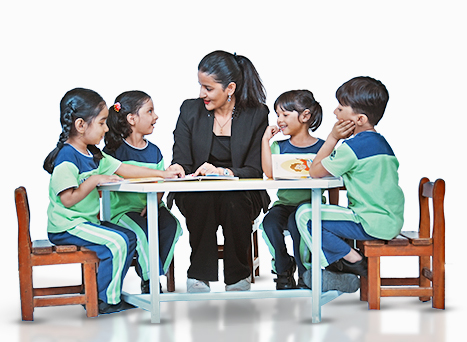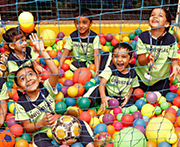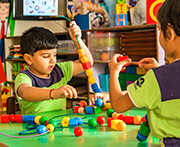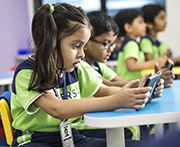First Steps for
All-round Development
Pre-primary is the first learning phase for every child. Our curriculum is inspired by Dr. Howard Gardner’s Theory of Multiple Intelligences, Theory of Constructivism, and the student-centric Reggio-Emilia approach. It’s designed to meet their needs, develop their interests and build their abilities to foster their holistic development during this stage of their education.







